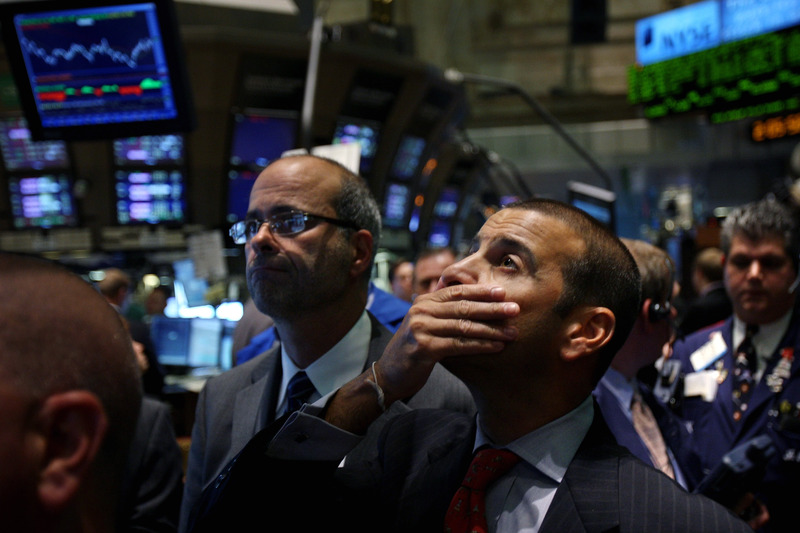What is a stock market crash? The short answer is that it depends on your risk profile. The financial media covers a one-day drop of 4% as though it were a crash. What happened after the terror attacks in 2001 was a crash. What happened going into the recession of 2008 and 2009 was a crash. The market crash of 1987 was a crash. The bull market of 2013 is not yet dead, but talk is picking up for another market crash, even if the logic and reasoning is different in each major discussion.
Here is what is working against the bulls. The debt ceiling debate is back. Earnings growth is slowing at a time when sales growth is almost nonexistent. Greece and Italy are in the “at risk” headlines again. Emerging markets and BRIC nations just are not supporting the wild growth we all have been used to. Interest rates are rising, even while economic data remains very mixed. Egypt and Syria are becoming serious risks beyond mere discussion. And the market internals are getting more questionable. Valuations of U.S. stocks are not overly expensive, but they are not cheap anymore either.
We already had a serious call for a crash, one of 10% to 20% as a possible mirror of 1987, by gloom and doom preacher Marc Faber. And now the latest trading glitch by NASDAQ OMX Group (NASDAQ: NDAQ) brought back memories of the so-called Flash Crash. It also was just shown that margin debt, borrowing against existing stock holdings, is at a record high.
Before you go hit the panic button, note that some believe a mini-crash would be a great entry point. We still have a live call from a technician that the S&P 500 Index is heading north of 2,500 for a secular bull market. Many investors have missed the rally almost in its entirety. If interest rates truly are going to rise further, as the risks sure seem, then it almost certainly has to be in anticipation of real economic growth returning. After all, stagflation is merely too painful an outcome after all the stimulus that has been thrown at this market.
Our own news screener is running light on the actual term “stock market crash” on Tuesday. What is not light the past three trading days are more than elevated. A news screener on EIN shows the past three days as the highest of any going back to May.
If you truly are scared of a stock market crash, there are many things you can do. You can lighten up on how much stock you own and slide into cash for a while. You can buy bonds, though the risks of rising interest rates still seem to outweigh the hope of lower interest rates. You can sell call options to increase income or hope your shares get called away at higher prices. And you can even buy put options.
This may be a quiet week based on weeks ahead of Labor Day in most years. That does not mean that you have to put your pocket-book and brain away from risks. Keep in mind that so far in 2013, the Dow Jones Industrial Average itself and the SPDR Dow Jones Industrial Average (NYSE: DIA) are up more than 15%, and the S&P 500 Index and the SPDR S&P 500 (NYSE: SPY) are both up more than 16%, as of Tuesday, August 27, 2013. It almost seems painful to consider this notion, but perhaps a mini stock market crash just needs to happen.
It’s Your Money, Your Future—Own It (sponsor)
Are you ahead, or behind on retirement? For families with more than $500,000 saved for retirement, finding a financial advisor who puts your interest first can be the difference, and today it’s easier than ever. SmartAsset’s free tool matches you with up to three fiduciary financial advisors who serve your area in minutes. Each advisor has been carefully vetted and must act in your best interests. Start your search now.
If you’ve saved and built a substantial nest egg for you and your family, don’t delay; get started right here and help your retirement dreams become a retirement reality.
Thank you for reading! Have some feedback for us?
Contact the 24/7 Wall St. editorial team.





